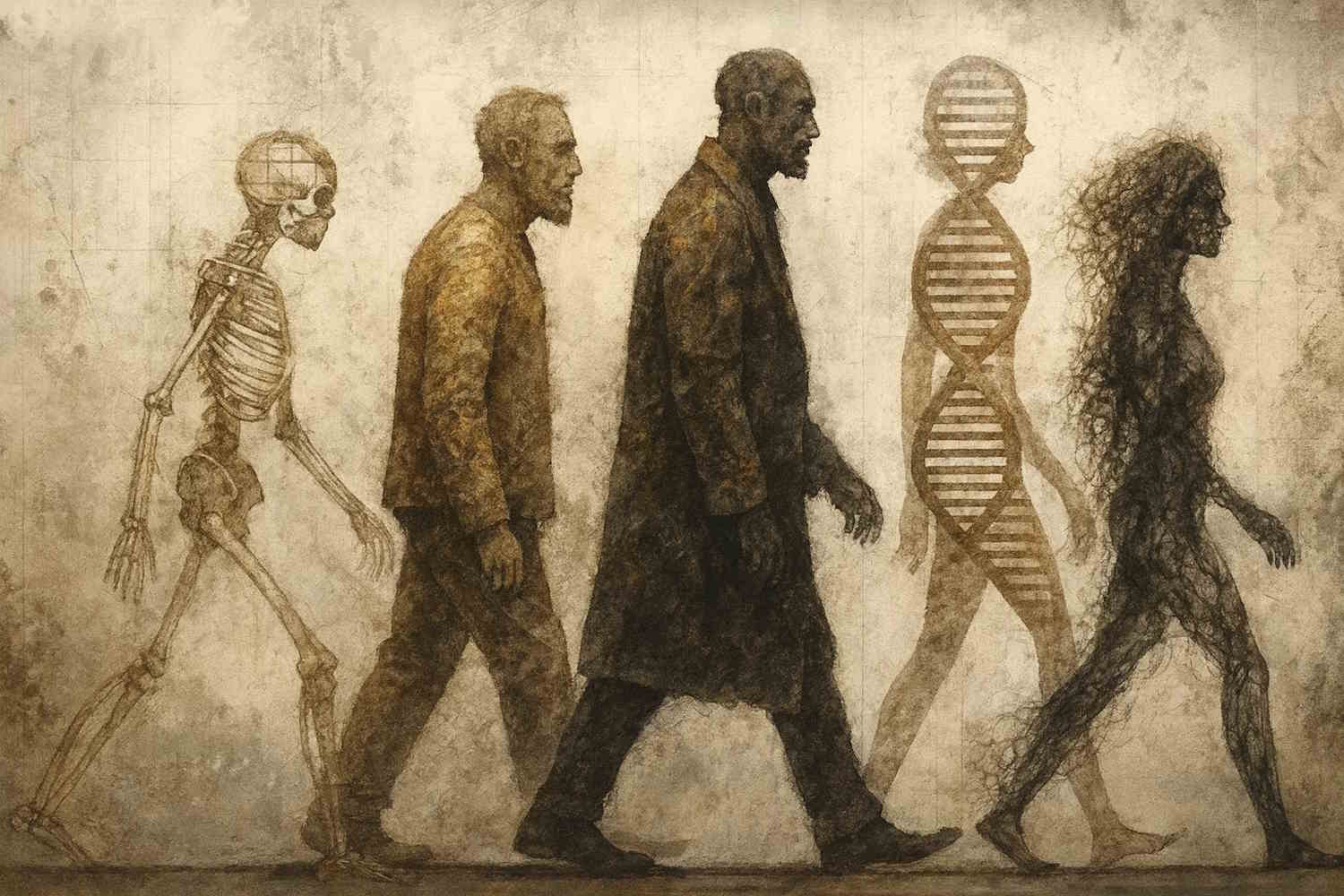Culture is overtaking genetics in shaping human evolution, argue researchers Waring and Wood. Our future may depend more on cultural systems than inherited DNA.

Are we sure that genes are still steering human evolution? According to Timothy Waring and Zachary Wood, two researchers from the University of Maine, the answer is no. In a study published in BioScience, they argue that culture has now overtaken genetics in determining the direction of our species.
This isn’t just a theoretical twist. Cultural changes today shape our lives, our bodies, and our societies far faster than genetic mutations ever could. That speed, they suggest, could mark the beginning of a new evolutionary chapter.
Glasses, c-sections, the internet: culture steps in where genetics falls short
Solutions to human problems no longer come exclusively from DNA. Instead, they emerge from tools, ideas, and knowledge we share. That changes everything.
The researchers explain that culture works like a fast adaptation system, one that responds to environmental and social challenges in a fraction of the time genes require. Consider something as simple as eyeglasses: a person with poor eyesight centuries ago would have struggled to survive or contribute to their community. Today, a small cultural artifact neutralizes that “genetic flaw.”
The same goes for cesarean births or vaccinations—cultural interventions that allow people who might once have been fragile, genetically speaking, to live, thrive, and pass on their traits.
As Wood puts it,
“Culture is driving evolution at a pace that genes cannot match.”
And this pace isn’t only about technology. It extends to the way societies themselves are organized.
The rise of the human “superorganism”
This is not science fiction. According to Waring and Wood, humans may be evolving from an individualist species into a collective one, where survival increasingly depends on group strength. Ants, bees, and termites already live in this way—highly organized, deeply interdependent communities.
DNA passes passively from parents to children. Culture, by contrast, is actively learned through behavior, imitation, language, and personal choice. It is not merely inherited—it’s something we adopt, adapt, and then decide to pass on.
That’s why public schools, healthcare systems, justice institutions, and technological networks are not just services. They’re evolutionary engines, shaping not only how we live but who we become as a species.
From biology to culture: the future is already here
Medical technologies, digital platforms, and social choices are already rewriting the rules of reproduction and survival. Assisted fertilization, gene editing, even the daily pull of social media—they all place us inside cultural systems that directly mold our biology.
Waring argues that we may soon find ourselves in a world where cultural decisions influence our evolution more than genes ever did. That possibility opens thorny questions: How much control will we really have over these choices? And at what cost?
When culture deepens inequality
But cultural evolution doesn’t always mean progress. Nor does it flow equally across the globe.
Wood stresses this point:
“We’re not saying that the most technologically advanced societies are better. Culture can evolve in both positive and negative directions. And not everyone has equal access to the same cultural tools.”
If survival increasingly depends on cultural systems, then access to healthcare, education, technology, and information becomes urgent—an evolutionary issue, not just a political one. Without equity, new forms of exclusion may emerge, reshaping not only daily life but the trajectory of humanity itself.
That’s why the researchers are developing mathematical models to track this shift, to understand where it’s taking us, and to imagine how we might guide it more sustainably.
As Waring concludes,
“Our future may depend less on the genes we inherit and far more on the cultural systems we choose to build.”
Source: BioScience
